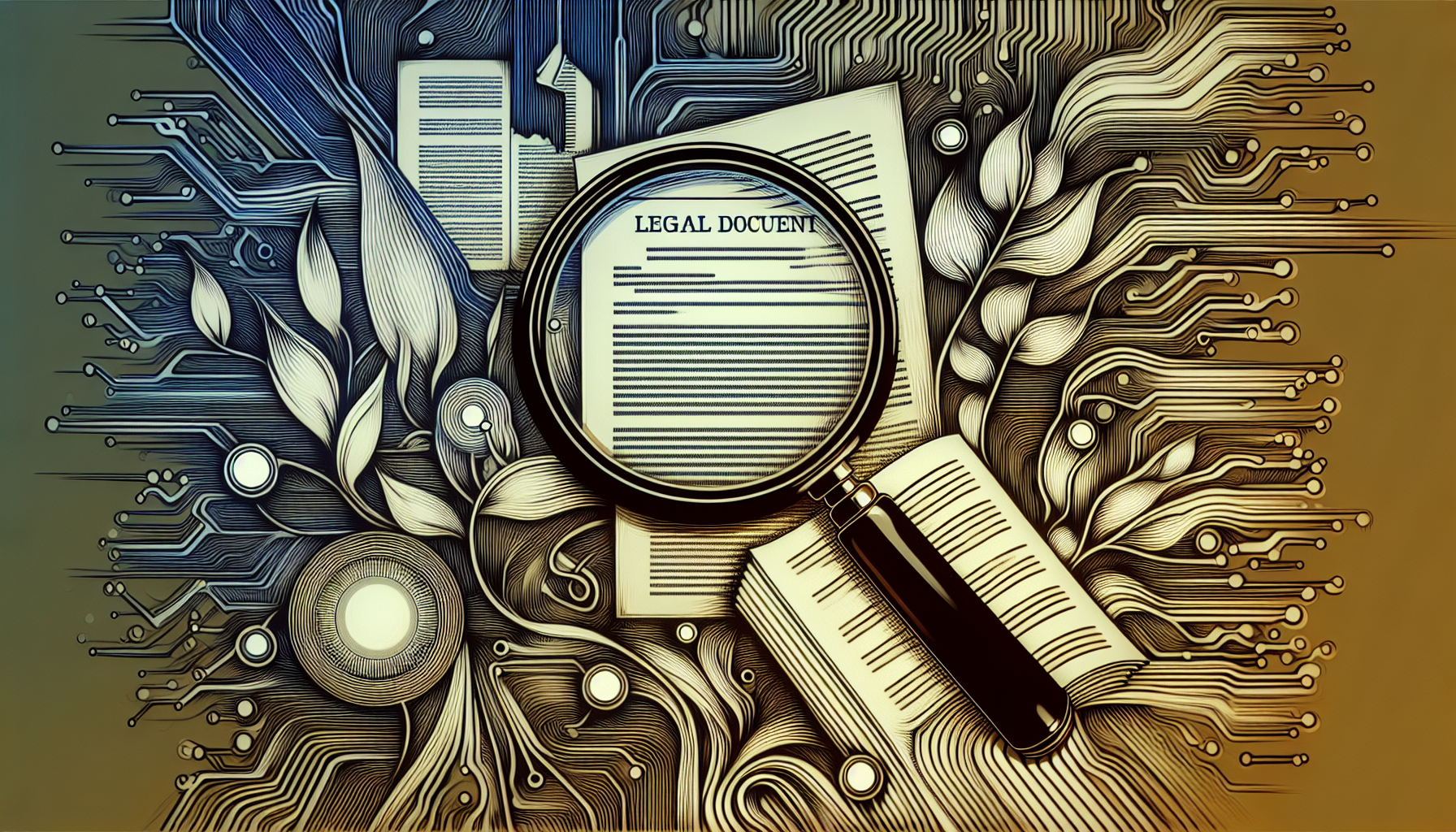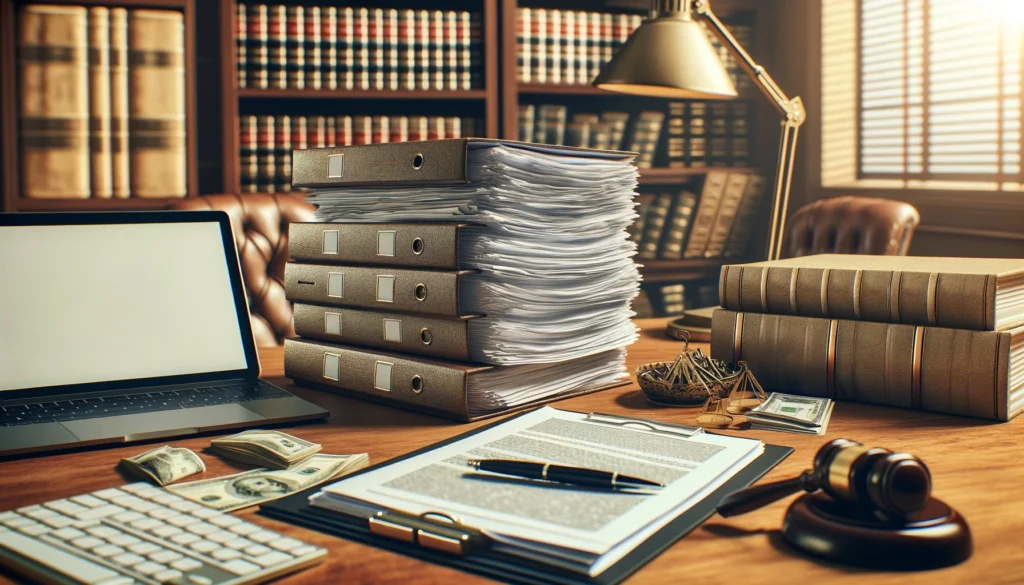
Setting the Stage: An Overview of Document Review in Personal Injury Cases
Document review is a cornerstone of personal injury litigation, where attention to detail can make or break a case. Thorough document examination ensures that crucial facts are not overlooked, allowing legal teams to build strong, evidence-based arguments. Traditionally, paralegals have faced numerous challenges in this area, from the sheer volume of documents to the meticulous task of cross-referencing information. These challenges can result in significant time and resource expenditure, placing immense pressure on legal professionals to balance efficiency with accuracy.
Embracing Technological Advances: Introduction to ChatGPT and LLMs
Enter ChatGPT and large language models (LLMs), which are transforming the legal landscape. But what exactly is ChatGPT? Developed by OpenAI, ChatGPT is a sophisticated language model fueled by vast amounts of text data, enabling it to understand and generate human-like text. For legal professionals, this technology heralds a new era of efficiency and precision.
Utilizing ChatGPT offers several benefits:
- Increased efficiency: Automating mundane tasks accelerates the review process.
- Enhanced accuracy: Reduces the likelihood of human error.
- Cost-effectiveness: Frees up paralegals for more strategic work.
With such promise, it’s essential to understand how to leverage this tool effectively.
Also read:
Crafting the Perfect Prompt: The Heart of Efficient Document Review
At the core of maximizing ChatGPT’s potential lies the art of prompting. Generating precise and effective prompts is crucial to ensuring that the output is relevant and accurate for personal injury cases.
Key concepts in prompt crafting include:
- Clarity: Be explicit about what information or task you need.
- Context: Provide background to guide the model’s response.
- Specificity: Narrow down the focus to avoid irrelevant information.
Here are examples of effective prompts tailored for personal injury cases:
“Summarize the key facts from the attached medical report related to the plaintiff’s injuries.”
“Identify discrepancies between the witness statement dated July 5th and the medical report dated July 10th.”
Such prompts guide ChatGPT to deliver targeted and concise information, making document review more efficient.
Also read:
Streamlining Case Preparations: Summarizing Key Facts with ChatGPT
Once you’ve crafted the perfect prompt, extracting and summarizing critical information becomes a breeze. ChatGPT can help legal professionals quickly distill vast amounts of data into digestible summaries, an invaluable aid during case preparations.
Techniques for effective summarization include:
- Direct prompts: “Summarize the accident report dated June 12th focusing on the cause of the accident.”
- Contextual framing: “Based on the provided documents, summarize the medical treatments received by the plaintiff over the last six months.”
These prompts ensure that ChatGPT delivers succinct summaries, saving time and enhancing comprehensibility.
Also read:
Enhanced Accuracy: Cross-Referencing and Fact Verification
Ensuring the accuracy of case details is paramount in personal injury litigation. ChatGPT can significantly aid in this regard by cross-referencing facts across multiple documents, identifying inconsistencies, and validating information.
Prompt strategies for improved verification include:
- Comparative prompts: “Compare the details of the accident from the police report and the defendant’s statement for inconsistencies.”
- Verification prompts: “Validate the timeline of events described in the witness statement against the medical records.”
Using ChatGPT for such tasks not only enhances accuracy but also ensures that any discrepancies are promptly addressed, strengthening the legal argument.
Also read:
Speed Up Documentation: Drafting Preliminary Case Reports and Letters
Drafting routine case-related documents can consume a significant portion of a paralegal’s time. ChatGPT can streamline this process by generating preliminary drafts of case reports, demand letters, and other legal correspondence.
To ensure quality and coherence:
- Template-based prompts: “Based on the provided case details, draft a preliminary demand letter to the defendant’s insurance company.”
- Customizable outputs: “Create a draft of the case report summarizing the medical treatment and expenses incurred by the plaintiff.”
Leveraging ChatGPT for drafting helps maintain consistency and allows for quick revisions and finalizations.
Also read:
Insightful Analysis: Identifying Patterns and Key Themes in Data
Beyond document review and drafting, ChatGPT can assist in the analysis of large data sets, helping identify patterns and key themes that may be pivotal to a case.
Creative prompts for thematic analysis include:
- “Analyze the plaintiff’s medical records to identify recurring issues or treatments following the incident.”
- “Review the deposition transcripts and highlight any key themes or repeated assertions.”
This depth of analysis can uncover critical insights, supporting a comprehensive understanding of the case dynamics.
Also read:
Ethical Considerations: Best Practices for Using AI in Legal Document Review
While the benefits of AI are manifold, legal professionals must remain vigilant about ethical considerations. Ensuring compliance with legal standards and safeguarding confidentiality and data security are paramount.
Best practices include:
- Regular audits: Conduct periodic reviews of AI-generated outputs.
- Clear protocols: Establish guidelines for data handling and usage.
Adhering to these practices ensures responsible and ethical use of AI in legal processes.
Also read:
Future-Proofing Your Workflow: Continuous Learning and Adaptation
The legal sector’s AI capabilities are constantly evolving, necessitating continuous learning and adaptation. Staying abreast of advancements ensures that legal professionals can fully harness these technologies.
Encourage proactive learning by:
- Regular training: Engage in training sessions and workshops on AI tools.
- Learning resources: Utilize online courses and literature on emerging AI trends.
Embracing this mindset helps future-proof your workflow, keeping you competitive in the legal landscape.
Also read:
Wrapping Up: Maximize Efficiency and Accuracy with ChatGPT
In conclusion, ChatGPT holds immense potential for revolutionizing document review in personal injury cases. By crafting precise prompts, utilizing the tool for summarization, cross-referencing, drafting, and analysis, legal professionals can significantly enhance both efficiency and accuracy.
Integrating ChatGPT into day-to-day workflows not only saves time but also ensures a meticulous approach to case preparation, ultimately bolstering the strength of legal arguments. Embrace the power of AI to stay ahead in the dynamic field of personal injury law.


